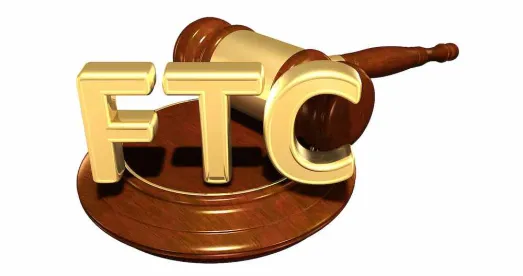At the end of June 2023, the FTC proposed a new rule targeted at deceptive reviews in the marketplace. The proposed rule would prohibit advertisers and marketers from employing illicit review and endorsement practices such as using fake reviews, buying positive reviews, and suppressing negative reviews.
In explaining its motivation for the proposal, the Commission noted the widespread emergence of generative artificial intelligence (AI), which it fears could lead to a drastic increase in the prevalence of fake reviews. The FTC hopes to “level the playing field for honest companies” with this new rule.
As discussed in the FTC’s press release, the proposed rule would prohibit deceptive practices such as:
Selling or Obtaining Fake Consumer Reviews and Testimonials: Businesses would be prohibited from writing or selling consumer reviews or testimonials by someone who does not exist, who did not have experience with the product or service, or who misrepresented their experiences. The rule would also prohibit businesses from procuring such reviews or disseminating such testimonials if the businesses knew or should have known that they were fake or otherwise false or misleading.
Review Hijacking: The proposed rule would prohibit the use of a consumer review written for one product such that it appears to have been written for a substantially different product.
Buying Positive or Negative Reviews: Businesses would be prohibited from providing incentives conditioned on the writing of consumer reviews expressing a particular sentiment, whether positive or negative.
Insider Reviews and Consumer Testimonials: The proposed rule would prohibit a company’s officers and managers from writing reviews or testimonials of its products or services unless they clearly disclose their relationships. It would also prohibit businesses from disseminating testimonials by insiders without clear disclosures of their relationships, as well as certain solicitations by officers or managers of reviews from company employees or their relatives, depending on whether the businesses knew or should have known of these relationships.
Company-Controlled Review Websites: Businesses would be prohibited from creating or controlling a website that claims to provide independent opinions about a category of products or services that includes its own products or services.
Illegal Review Suppression: Businesses would be prohibited from using unjustified legal threats, intimidation, or false accusations to prevent or remove a negative consumer review. The proposed rule also would bar a business from misrepresenting that the reviews on its website represent all reviews submitted when negative reviews have been suppressed.
Selling Fake Social Media Indicators: Businesses would be prohibited from selling false indicators of social media influence, like fake followers or views.
The FTC notes that these practices are already unlawful under Section 5 of the FTC Act, as they would qualify as unfair or deceptive acts or practices. But the FTC believes the proposed rule would serve two additional functions. First, it would further deter against these practices. And second, it would allow the FTC to seek civil penalties against violators, in turn allowing the Commission to obtain monetary redress for victims of fake reviews.
The FTC is seeking comments on the proposal by September 29, 2023. Advertisers and marketers should keep an eye on this proposal as it progresses to the final rule stage. As the Commission noted, this rule could play a substantial role in the advertising space, especially in light of the recent emergence of generative AI.



 />i
/>i


